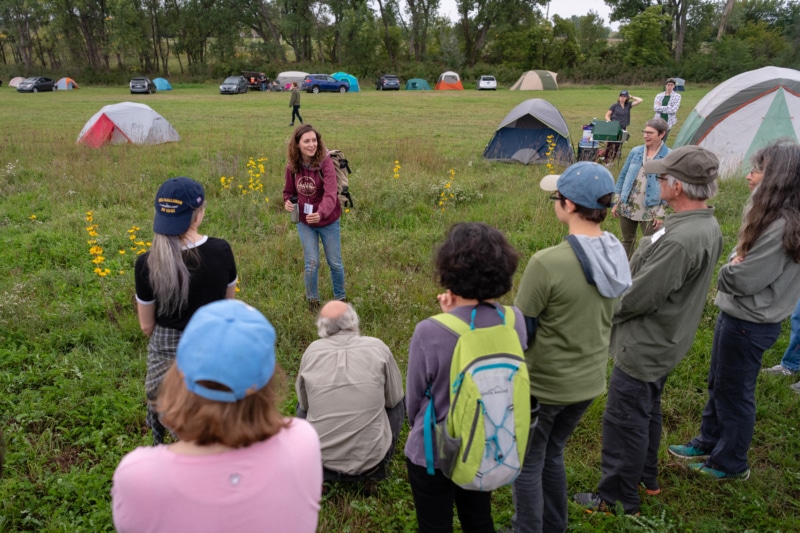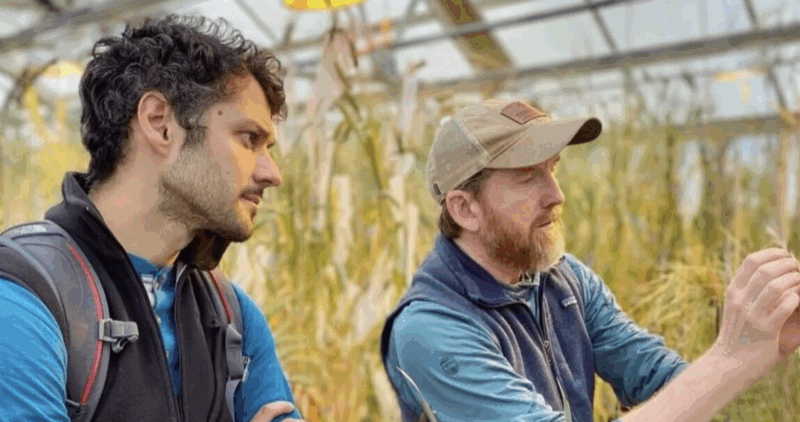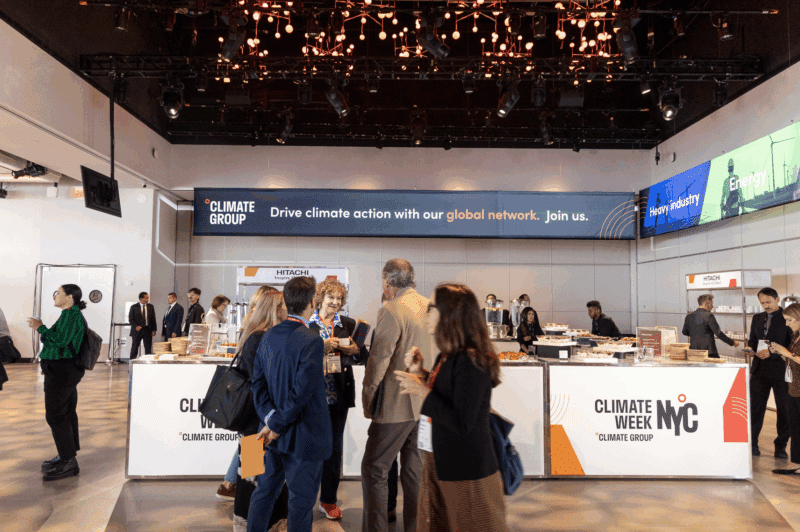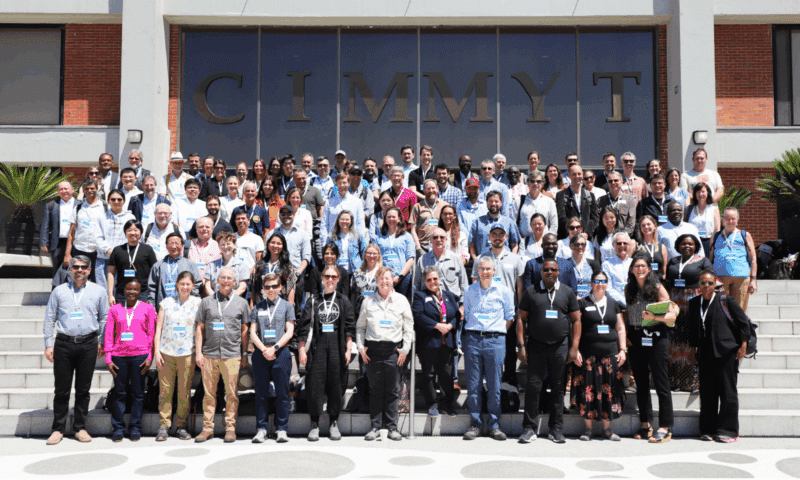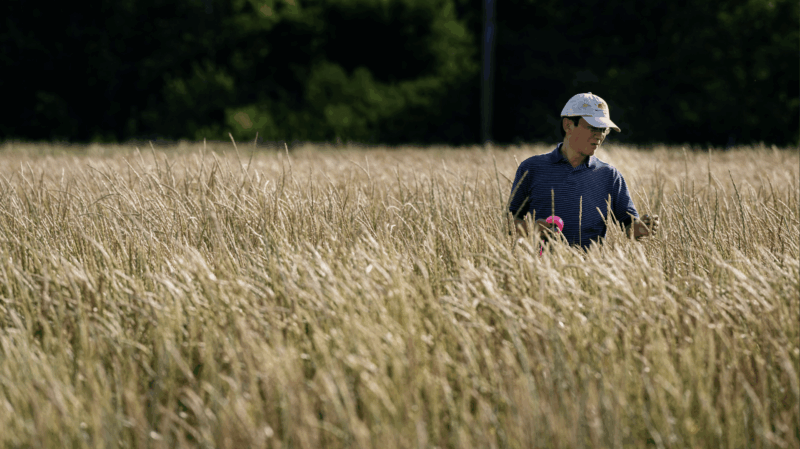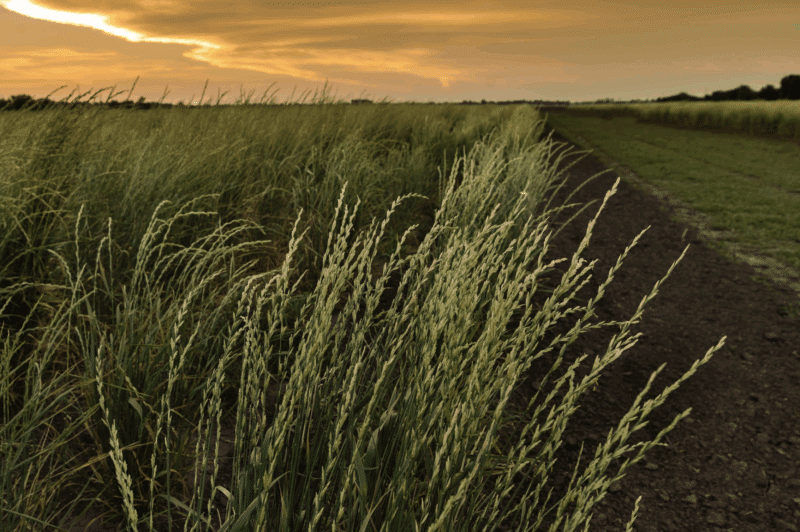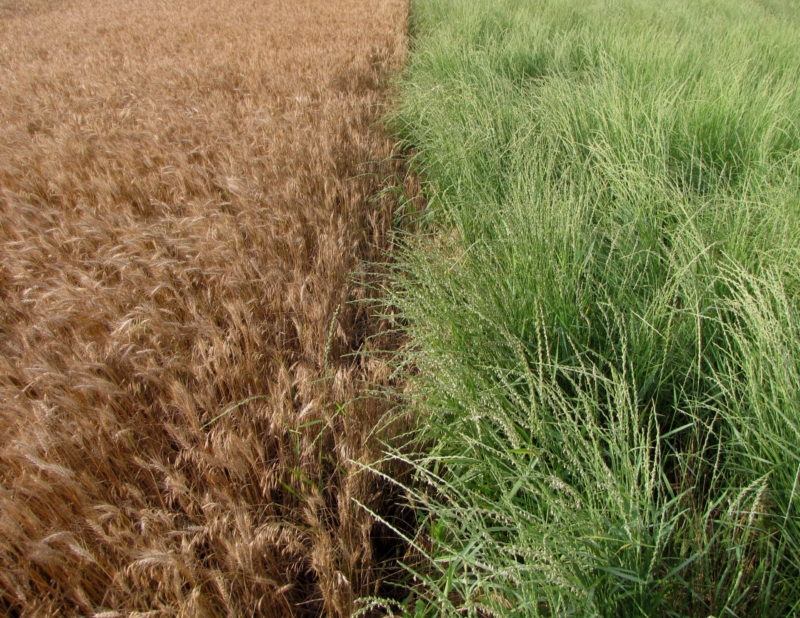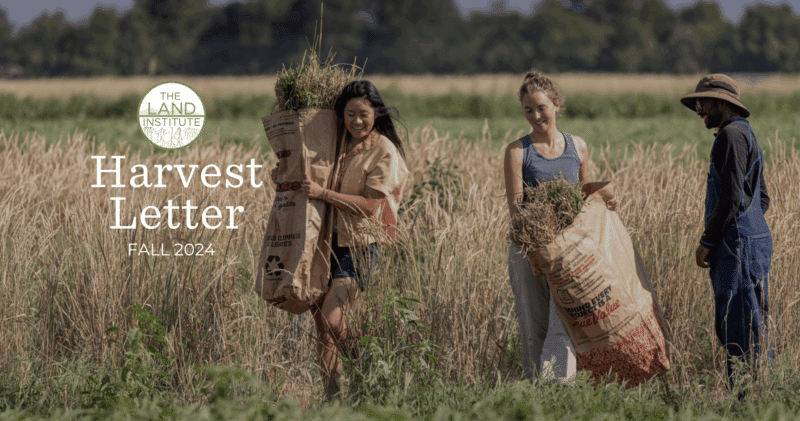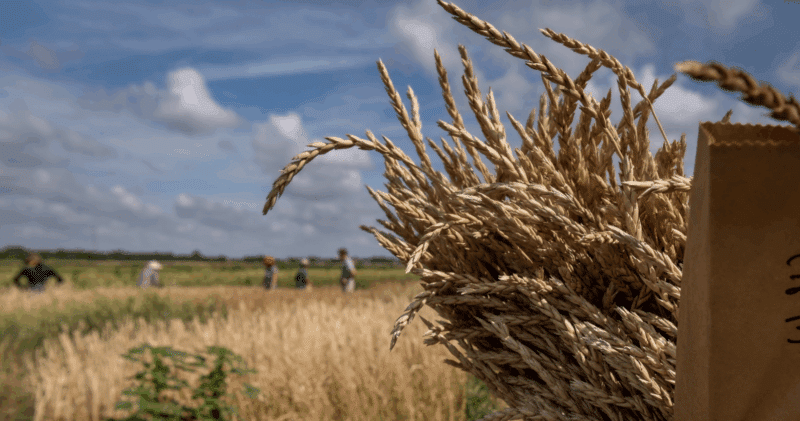ESTES PARK, CO — Four dozen researchers from five continents converged on a historic hotel in the Rockies and brainstormed about helping The Land Institute achieve its aim — perennial grains grown in mixtures.
The four-day conference, titled New Roots for Ecological Intensification, was staged in late October at the Stanley Hotel in Estes Park, Colo. The sessions, which lasted deep into the evening, were focused on the question of how to speed development of perennial grains. Included were many small, crop-specific breakout discussions where researchers shared what they’ve learned and challenges they’ve encountered. The event was sponsored by The Land Institute and the Estes Institute, an Estes Park-based nonprofit organization that promotes conservation.
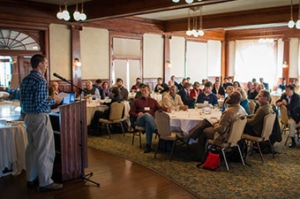 One of the participants, Anna Westerbergh, a Swedish barley breeder, said the conference was “inspiring” and a rich source of new research contacts.
One of the participants, Anna Westerbergh, a Swedish barley breeder, said the conference was “inspiring” and a rich source of new research contacts.
Angus Wright, chairman of The Land Institute’s board, agreed. “Firsthand contact is powerful,” he said.
That the conference drew so many scientists illustrates a growing network among perennial grain researchers, said Wes Jackson, president of The Land Institute.
“I sensed congeniality, and things really happening,” he said.
Tim Crews, director of research at The Land Institute, said debate about food security is converging on recognition that the worsening problem of land and water degradation inherent in agricultural reliance on annual grains cannot be solved without a wholly new approach. Perennial plants build and conserve soil, keep nutrient cycles tight and enjoy longer growing seasons, which allows for greater net primary productivity.
The researchers discussed hybridizing, with wild perennial relatives, wheat, rice, sorghum, sunflower, rye and other annual grains, and the direct domestication of perennial sunflowers and intermediate wheatgrass. They also explored how legumes grown in a species mixtures could supplant synthetic nitrogen fertilizer for better soil, less carbon dioxide from ammonia manufacture, and possibly less emission of nitrous oxide, a potent greenhouse gas arising primarily from agriculture. Perennial crops would further reduce emissions through fewer farm equipment passes.
Jackson said the discussions were centered on “what can we do about making the great transformation? It was maybe our finest hour.”
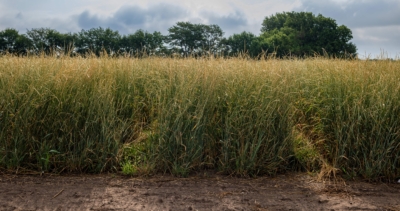
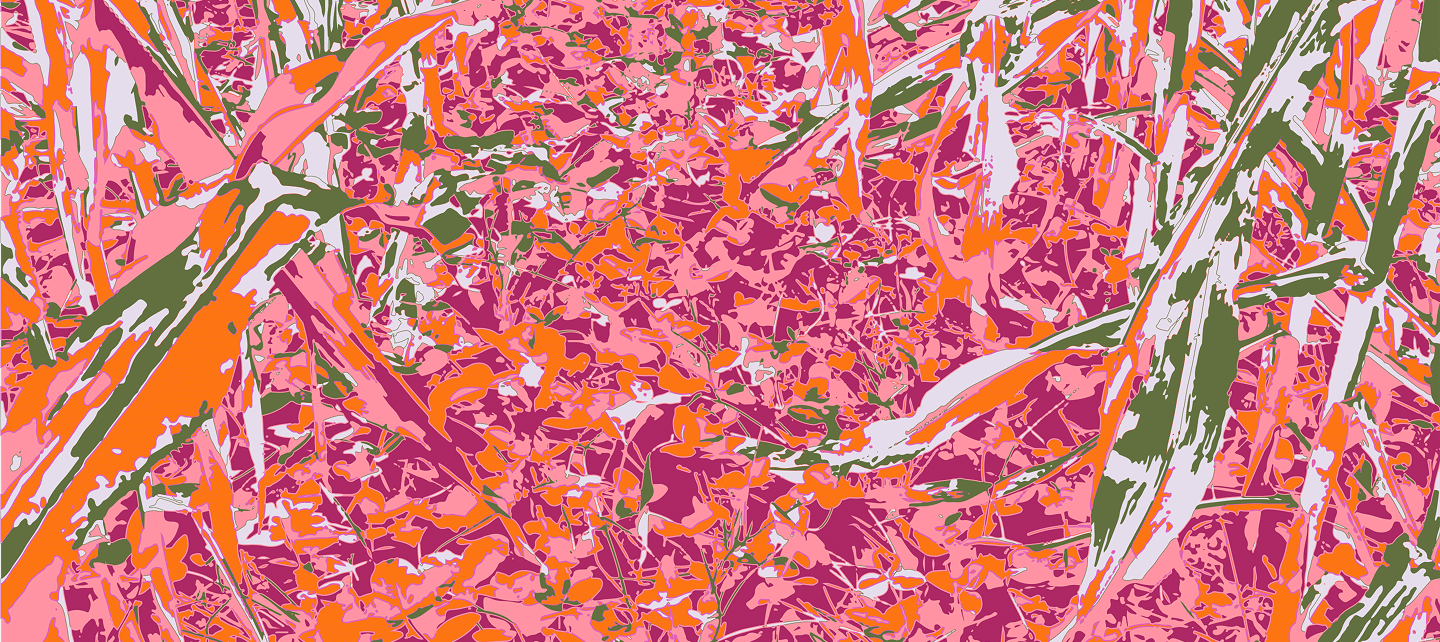
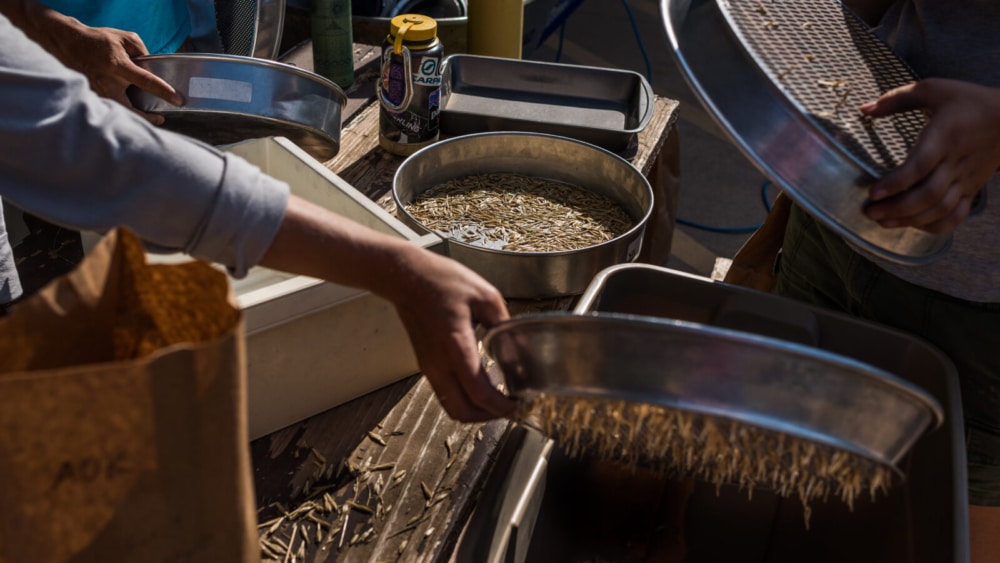
 One of the participants, Anna Westerbergh, a Swedish barley breeder, said the conference was “inspiring” and a rich source of new research contacts.
One of the participants, Anna Westerbergh, a Swedish barley breeder, said the conference was “inspiring” and a rich source of new research contacts.
